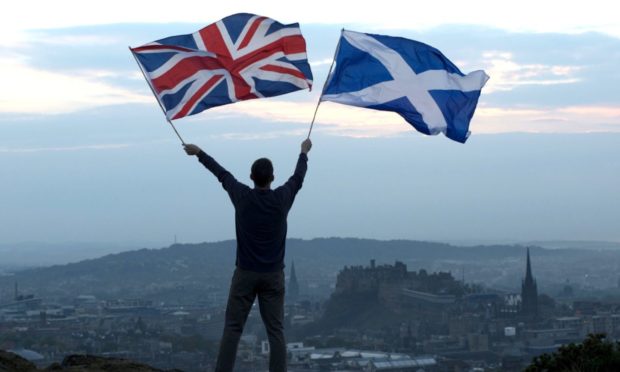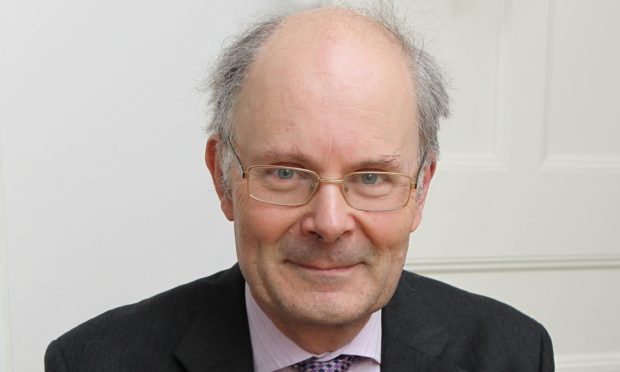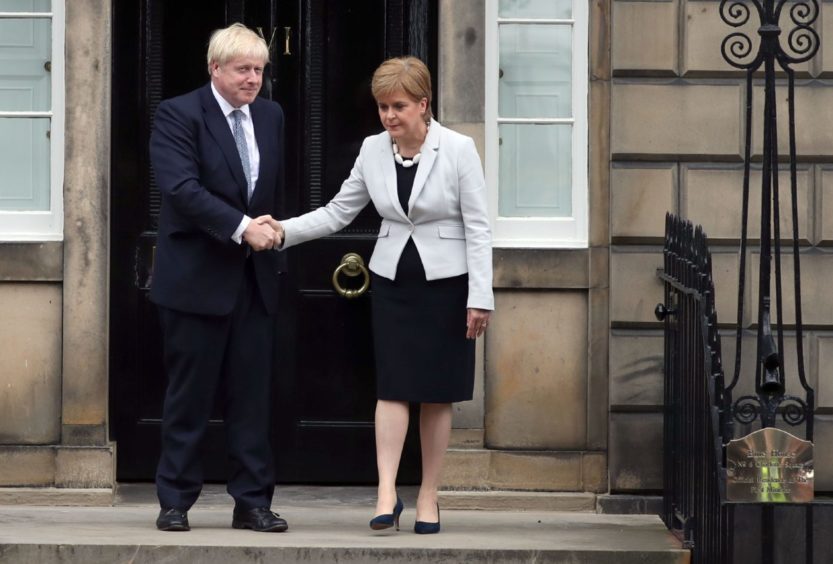Six years on from the 2014 Scottish independence referendum, Brexit and the handling of the coronavirus pandemic by Scotland’s two governments appears to be driving support for a new ballot. We spoke to leading pollster Sir John Curtice for his take.
The 2024 General Election could be used as a de facto independence referendum if Westminster rejects calls for a new vote from an SNP majority government next year, a leading polling expert has said.
Strathclyde University’s Professor Sir John Curtice suggested the SNP could consider running on a platform where winning a majority of Scottish seats in a future election would be regarded as grounds to declare independence.
This would be a return to the party’s official position prior to devolution, which was dropped in a bid to make the SNP more electable to voters who do not back separation.
Sir John, one of the country’s most respected political academics, also singled out coronavirus as the biggest public policy issue in the history of the Scottish Parliament and predicted it could have a major impact on any push for independence.
The Scottish Government will publish draft legislation for a second referendum, including their proposed question and date of the vote, before the end of the current parliament at Holyrood.
According to polling, the SNP is on track to win a outright majority at next year’s Scottish Parliament election but some party grandees have pushed leader Nicola Sturgeon to outline her plans if Downing Street says no to a new ballot.
Sir John believes such a scenario would create a “game of chicken” between Scotland’s two governments which could see the SNP stand in future elections on a ticket of declaring independence without needing to hold a referendum.
He said: “If the SNP get an overall majority at Holyrood on their own next year, which I think is the condition they will have to satisfy, and by one means or another the UK Government says no, then you have to ask what position they will adopt in response.
“One possibility would be to say that if the UK Government is not willing to accept a referendum, then they would regard forthcoming elections as indeed a vote on independence.”
Sir John said such a scenario could see the SNP adopt a stance where if the party wins a majority of Scottish seats in 2024, it would be regarded as a vote in favour of beginning negotiations to leave the UK.
He believes that position could even be used as a bargaining chip for keeping a future UK Government in office if there is a hung parliament following the 2024 General Election, which he said would put the SNP in a “rather strong position”.
Sir John’s comments came following an online debate with Alliance for Independence leader Dave Thompson, SNP depute leader Keith Brown and Greens co-convener Lorna Slater, organised by the Yes Grassroots Oban group.
Mr Thompson, a former SNP MSP, argued that if a coalition of pro-independence parties are able to secure more than half of the popular vote at next year’s election, that in itself could be seen a mandate for independence, rather than just another referendum.
He said this could lead to “immediate negotiations with the rest of the UK to achieve full and legal independence within a few years”.
Brexit and coronavirus: game changers?
However, Sir John does not believe the SNP are likely to switch from their current game-plan for 2021 – to secure a majority and then begin talks with Downing Street.
Current polling puts the party significantly ahead of all opposition groups and support for independence has also continued to rise, currently sitting at an average of 53-47.
Sir John’s own analysis has established Brexit and the coronavirus pandemic as among the main causes, and the outcomes for both are predicted to have a significant impact on the future of the independence debate.
“Brexit has significantly changed the character of support for independence,” Sir John said. “If you go back to 2014 independence referendum, there was no relationship at all between people’s views about the EU and whether they voted Yes or No.
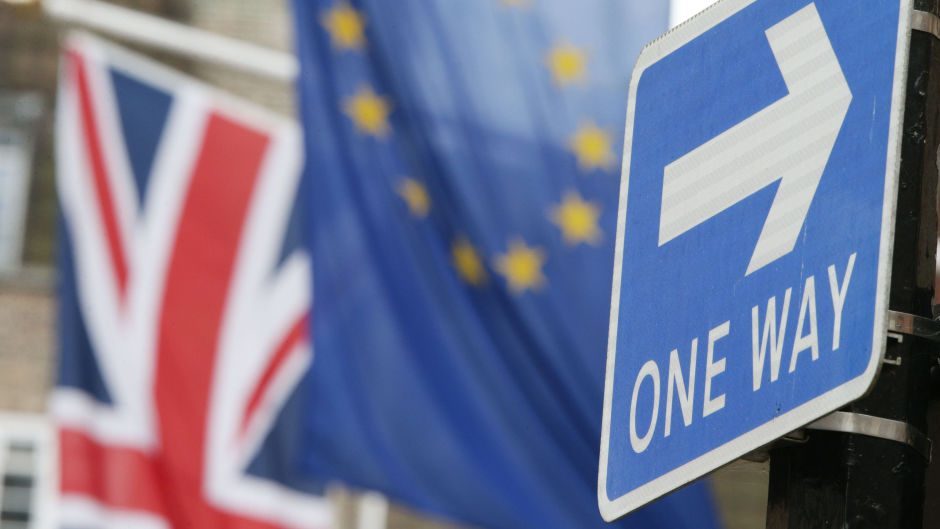
“After the 2016 EU referendum, there begins to emerge a link. Some people who voted No and Remain switched to Yes but equally some people who voted the other way switched to No.
“But what we began to see in the polls last year was that almost all of the increase in support for independence had occurred among remain voters.
“This is something bigger than the competence of Boris Johnson or what you think about the Scottish opposition leaders, it’s about the fundamental policy objective of the UK Government, a policy objective which is deeply unpopular in Scotland and looks as if it has the ability to change people’s views on independence.”
Sir John believes there is evidence to show the coronavirus pandemic has also led to the surge in support for independence. He said 20% of people who voted No in 2014 now believe the outbreak would have been handled better by an independent Scotland.
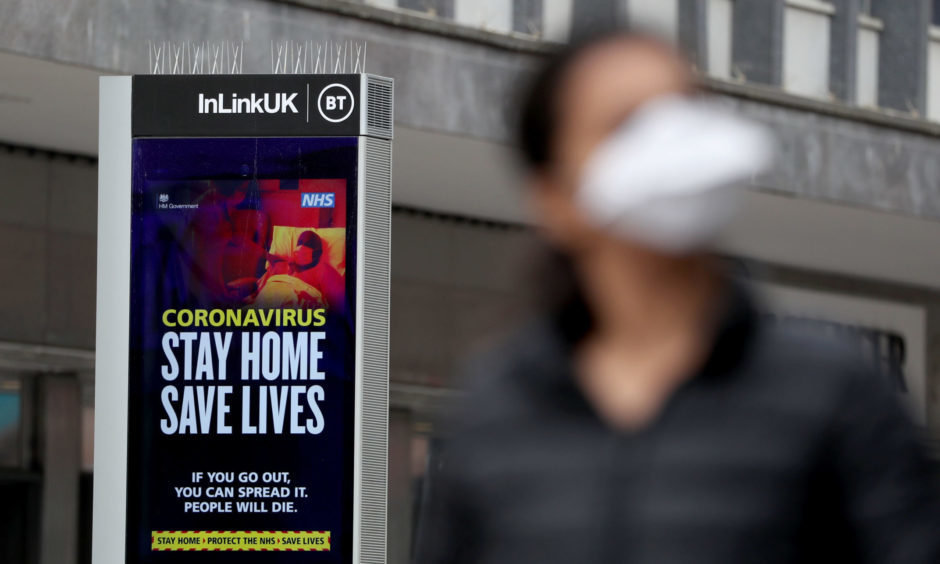
“Certainly there has been a further increase in support for independence since coronavirus kicked in, and that is why we are now at an average of around 53-47,” Sir John said.
“The reason why that doesn’t appear to be to do with Brexit is because now the rise in support for independence has occurred among leave voters as well as remain voters.
“Coronavirus is the biggest public policy issue in 21 years of devolution. Forget free university tuition, forget free personal care and all these things that were thought of as iconic to devolution.
“Devolution has never mattered more than it has done with coronavirus because, of course, it’s been the Scottish Government that’s been responsible for running the health service and, crucially, dealing with all the public health crises which have controlled, changed and restructured people’s lives.”
